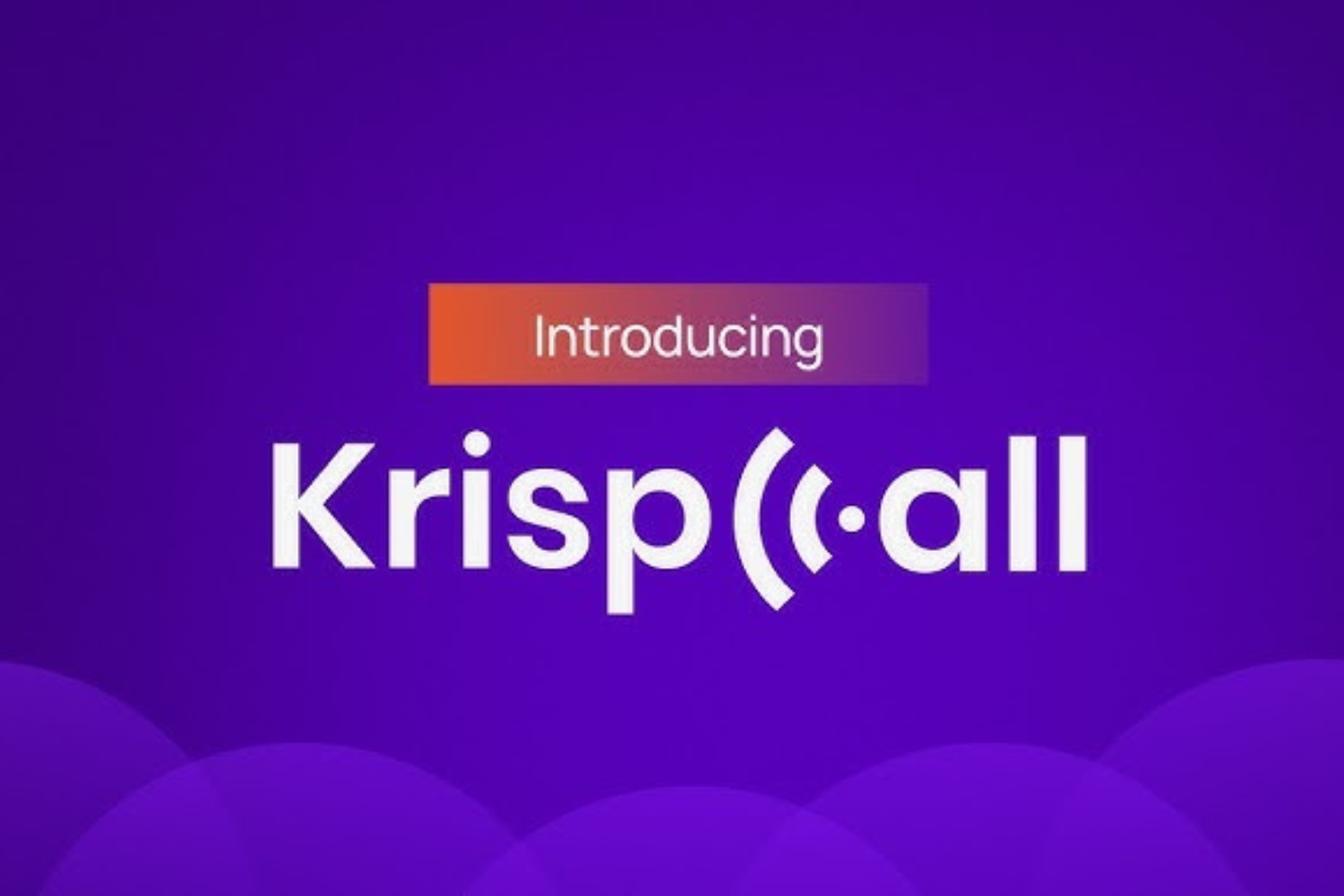Most websites built on the WordPress website builder enjoy limitless free themes allowing them to design and develop competent blog sites. On that note, WordPress is a free and open-source content management system based on PHP & MySQL to help you launch a website for your business seamlessly. Whereby, the main features include a plugin architecture and a template system.
The WordPress Websites Platform is not only associated with blogging but, also supports other types of web content, including, CMS, more traditional mailing lists and forums, media galleries, and online stores by WooCommerce Plugin. Upon the recent release of WordPress 5.0 Bebo (formerly Project Gutenberg), WordPress made revisions to how the default editor handles content editing.
And now, webmasters will mainly be using what is referred to as a block-based editor. Gutenberg allows users to modify their displayed content in a much more user-friendly editor than in prior iterations. Block is the abstract term used to describe units of markup that, composed together, form the content or layout of a webpage.
Related Topic: Why Cloudflare Is The Best CDN For Web Performance & Security
This release is named in homage to the pioneering Cuban jazz musician Bebo Valdés. Past content that was created on WordPress pages is listed under what is referred to as a Classic Block. Likewise, the Classic Editor Plugin was created as a result of User preferences. Though it will be supported for at least until 2022.
And also, as a way to help website developers maintain past plugins only compatible with WordPress 4.9.8. In the end, giving plugin developers time to get their plugins updated & compatible with the 5.0 release. Having the Classic Editor plugin installed restores the “classic” editing experience that WordPress has had up until the WordPress 5.0 release.
What Is WordPress Website Builder?
WordPress Website Builder is a free and open-source Content Management System (CMS) written in PHP and paired with a MySQL or MariaDB database. Its key features include a plugin architecture and a template system, referred to within WordPress as Themes.
Technically, the best website builder by WordPress powers nearly one-third of the world’s websites, from small personal blogs to the complex sites of major corporations. Such as jmexclusives, Sony, Time Inc., the New York Post, and NBC. WordPress is only one of the site builders and content management systems users can download and install for free.
But, the CMS platform has unique features that make it the most popular content management system in use today. In addition, it tops the list of the three most often used site-building packages in the world, followed by Joomla and Drupal.
Comparatively, the WordPress website builder is like a restaurant. Even if you’ve never worked in the food industry, you likely already know that restaurants and cafes have two parts to their business.
Such as the;
- Front of the house
- Back of the house
Though these are separate areas within the business, you can’t have one without the other. Whereby, in a restaurant, the back of the house is where all the yummy stuff gets made.
People who eat at the restaurant don’t see this part. But if it didn’t exist, there would be no way for them to receive their food. Whereas, the front of the house, on the other hand, is where customers experience and appreciate the restaurant (in this case, the WordPress Themes).
Learn More: How To Create A New WordPress Site | Free Ultimate Guide
In reality, WordPress first appeared in 2003 as a joint effort between Matt Mullenweg and Mike Little to create a fork of b2. Christine Selleck Tremoulet, a friend of Mullenweg, suggested the name WordPress.
In 2004 the licensing terms for the competing Movable Type package were changed by Six Apart. Resulting in many of its most influential users migrating to WordPress. By October 2009 the Open Source CMS Market Share Report concluded that WordPress enjoyed the greatest brand strength of any open-source content management system.
How the WordPress Website Builder Platform works
In the first place, WordPress is an online, open-source website creation tool written in PHP Language. And, in layman’s language, it’s probably the easiest and most powerful blogging and website content management system (or CMS) in existence today.
For example, the Web Tech Experts Website is WordPress Theme Layout built on. Offering its simplicity when it comes to versatile CMS exchange, blogging, e-commerce to even its business portfolio. Notably, WordPress was released on May 27, 2003, by its founders, Matt Mullenweg, and Mike Little, as a fork of b2/cafelog.
The software is released under the GPLv2 (or later) license. In order to function, the WordPress Website Builder Platform has to be installed on a web server. Either part of an Internet hostings service like WordPress.com or a computer running the software package WordPress.org in order to serve as a network host in its own right.
Related Tool: Neve WordPress Theme | It’s Lightweight, Built For Speed!
Generally, WordPress is the most popular website management system in use. Not forgetting that WordPress has also been used for other application domains such as pervasive display systems (PDS). So, what is the difference between WordPress & Themes?
On one hand, this is one of the things about the WordPress website builder that trips people up straight away. On the other hand, WordPress(the back of the house) is the term used to describe software. Technically known as a CMS (content management system) that runs a WordPress-powered website.
What Are Themes?
In general, WordPress Themes are interchangeable designs within the website that dictate the look and feel of the site’s front end. For instance, the part of the website that visitors see and interact with. Hence, the WordPress Theme you use (the front of the house) sets the tone of the part of your website.
This is where your visitors see and interact with the content you’ve created in the back of the house. Just like in a restaurant, you need both the front end (WordPress Themes) and the back end (WordPress) to have a viable, functional website. Even though they are different, you’ll not have one without the other.
Remarkably, there are thousands of WordPress Themes (both free and premium) to choose from. WordPress.org has a large collection of free ones in their Themes Directory. Each one comes with a different design, layout, and features. User needs to choose the one that suits their taste and requirements for their website.
WordPress Themes can be modified by adding plugins or by adding code to the functions.php file. Not to mention, changes can also be made in the form of a child theme. Themes generally consist of three parts in addition to images and JavaScript files.
The three parts are;
- style.css file,
- template files,
- optional PHP file functions
It’s important to realize, every WordPress Theme must have a unique style.css file. However, this doesn’t mean that the styles can’t be the same but rather that the identifying information in the header needs to be different.
Otherwise, you’ll have problems during the installation stage. If it is not a child theme, then it also needs to have at least an index PHP template file to control the display of content. With that in mind, there are more themes file modification, design, and development guides you should also look at.
Consider the following:
- General Theme Editor
- Optimal WordPress Child Theme
- Responsive Theme
- Responsive Theme Framework
- Features and general Theme Options
- Default Theme Guide
- Parent Theme Training and Learning Guide
Websites users may install and switch among different themes, but WordPress Websites require at least one theme to be present. Equally, Themes allow users to change the look and functionality of WordPress Websites without altering the core code or site content.
Furthermore, every theme should be designed using WordPress standards with structured PHP, valid HTML (HyperText Markup Language), and Cascading Style Sheets (CSS). Additionally, Themes may be directly installed using the WordPress administration tools in the dashboard.
Also, Theme folders may be copied directly into the themes directory, for example via FTP. Likewise, the PHP, HTML, and CSS found in themes can be directly modified to alter theme behavior, or a theme can as well be a “child” theme. In which it inherits settings from another theme and selectively overrides features.
Free vs Premium WordPress Themes
WordPress Themes are generally classified into two categories. Including, the Free and Premium WordPress Themes. Above all, many free themes are listed in the WordPress theme directory, and premium themes are available for purchase too. Either from marketplaces or individual WordPress developers.
WordPress users may also create and develop their own custom themes. The free theme Underscores created by WordPress developers has become a popular basis for new themes. Unfortunately, a free WordPress Theme has limited features and no extra functionality. This a useful element that many larger and more professional websites and webmasters require.
Surprisingly, some free themes have over 1 million downloads. However, Free themes are not unique when compared with their premium themes counterparts. Equally, the Premium Themes should be feature-rich, responsive, and well-supported by the vendor’s support staff.
What is the Cost of Premium WordPress Themes?
Basically, Premium WordPress Websites Themes are much more affordable. Not forgetting, hiring a designer to build you a custom theme is notably expensive.
While professional custom blog designs may cost upwards of $2,000, premium themes usually cost between $30 – $100. However, there are no fixed standards or certification that designates a theme as being premium. Anyone can build a WordPress theme, brand it as premium, and offer it for sale.
Related Topic: WordPress Child Themes | Advantages & Disadvantages
As a matter of fact, if well received and demanded, you’ll receive quite a handsome lifetime income. Even with time, general and demanding online support and help come in handy. So, where do I find WordPress Free or Premium Themes?
Well, the official WordPress Theme Directory is, of course, the best place to find all kinds of Free and Premium WordPress Themes. So to say, if you’re on a budget, you’ll likely want to look no further. Whereby, as it stands, there are essentially just three places from which to obtain decent WordPress Themes.
Consider the following:
- On the official WordPress Theme Directory.
- Through the WordPress theme shops; such as Themify, Elegant Themes, and StudioPress.
- Online Theme marketplaces (the most popular of which is, without a doubt, Themeforest).
For online endeavors with even a small budget, though, there’s also the world of premium themes. The upsides to choosing a premium theme are significant, and will often include such things as more features, much better support, and more frequent updates.
For beginners, there are some considerations to make while choosing a WordPress Theme. Always remember, there are thousands (10,000-plus) of WordPress themes out there, so many that it would take days on end to search through them all.
Related Tool: SiteOrigin Page Builder | For WordPress Themes & Plugins
In that case, how do you narrow it down to find the perfect one for your site? Choosing the right theme is obviously important. Inasmuch as the right one should give your content pizzazz, keeping it responsive across devices, while also loading in the blink of an eye.
Yet with so many themes in the pool, it can be a rather daunting task to pick the best one possible. However, before buying a theme, or investing your time in customizing one, be sure to always remember the do’s and don’ts when it comes to selecting the perfect WordPress theme.
Consider the following:
- Making a list of the Features you want ahead of time.
- Avoiding bloated themes.
- Selecting an AMP Ready and Responsive website dominant to various devices.
- Such as the desktop, mobile, tablet, and other gadgets layout.
- Keep in mind the clarity of color features and options.
- Consider upgrading or seeking a premium theme.
- Choose a font customizable theme.
- Before purchasing, make sure that you run some satisfactory tests.
What Are Plugins?
To enumerate, a plugin is a piece of grouped functions software. In addition, they can extend functionality or add new features to your WordPress websites. At the same time, WordPress plugins are apps that allow you to add new features and functionality to your WordPress website.
Exactly the same way as apps do for your smartphone. Often, beginner users ask us about the best WordPress plugins. Below is an answer to this and such questions in a video format by Neil Patel:
Plugins are an important part of the WordPress ecosystem, and as such, they are essential for building great websites.
According to jmexclusives, the most lucrative deal for your website and blog theme design and development also includes the 49+ Best WordPress Plugins in 2021 (Most are FREE). Below is another breakdown of the topmost plugins as well.
Consider the following:
- WPForms Lite
- MonsterInsights Lite
- Google XML Sitemaps
- Jetpack
- Lazy Load by WP Rocket
- W3 Total Cache
- Yoast SEO
- UpdraftPlus
- Sucuri Security
- Shared Counts
- Insert Headers and Footers
- Simple Author Box
- Duplicator
- Better Click to Tweet
Deciding Between Free vs. Premium Plugins are hands down, it’s one of the best things about WordPress. Thereinafter, by adding a few simple plugins to your website, you can completely transform its functionality.
However, you have to consider free vs. premium plugins, or whether to upgrade to a freemium plugin. There is not much of a main difference between WordPress Themes and Plugins. Although, Themes also add some features and functionality to a site they are different from plugins.
Related Source: ThemeForest | WordPress Themes & Website Templates
As I mentioned, a WordPress Theme is an external effect like a website’s presentation design and development.
While a WordPress plugin is an interior effect that adds or removes some functions to a site. Furthermore, they add these functions without changing the general website appearance, unlike the website theme. It’s more in comparison to your house’s internal decorations (plugins) and your external appearance (theme).
Benefits of Using the WordPress Website Builder
Prior to version 3, WordPress supported one blog per installation. In addition, WordPress Multisite (previously referred to as WordPress Multi-User, WordPress MU, or WPMU) was a fork of WordPress. WordPress Multi-user makes it possible for websites to host their own blogging communities.
As well as control and moderate all the blogs from a single dashboard. Additionally, WordPress CMS (Content Management System) adds eight new data tables for each blog. As of the release of WordPress 3, the WordPress Multi-user platform has merged with WordPress.
WordPress tops the list of the three most often used site-building packages in the world, followed by Joomla and Drupal. Both Joomla and Drupal require a certain level of technical know-how and familiarity with HTML and the programming language PHP.
WordPress allows experienced users to work at that level, too—but, unlike Joomla and Drupal, it also includes features for beginners. Of course, so that they can set up a site quickly with no knowledge of code or programming. Below are the more competitive benefits of using the WordPress website builder.
Flexible & Adaptable
- WordPress sites can contain full-service e-commerce stores, showcase a portfolio, or host a social network, group, or podcast.
- Whatever a company’s requirements, the core WordPress package plus a combination of its many plugins can make a site suit.
- Thanks to its many themes and easy access to its source files, WordPress is also endlessly adaptable to a company’s changing needs.
User-friendly
- All a user needs is a domain name and a hosting account.
- The WordPress website builder can be installed free through your sign-up for Bluehost WordPress hosting provider or uploaded directly from WordPress.org.
Multiple Options
- WordPress themes offer users an array of choices for fine-tuning the appearance and functions of a new site.
- Of course, thanks to its large and growing directory of themes.
- Many of these are instantly available to a new site owner through the WordPress theme directory.
Extend Functionality
- WordPress includes all the elements needed to create a basic site.
- There are also solutions for users who want more specialized functions related to a site’s specific needs.
- Its plugin directory includes hundreds of plugins.
- Users can also purchase and install hundreds of custom plugins from third-party developers.
Ranking High
- Searchability is key to ranking high on Google and other search engines.
- And because WordPress includes a variety of tools and plugins for optimizing content for SEO (search engine optimization).
Mobile Responsiveness
- Mobile responsiveness is also a factor in Google rankings, so websites need to look good on any device.
- WordPress offers a variety of responsive theme designs.
- Its users can also make a static site responsive with plugins and adjustments to theme files.
Built-In Blog
- Since WordPress is a content management system, it has multiple features that make publishing content easy.
- That makes it possible even for sites unrelated to blogging to use the blog feature for adding updates or announcements.
Community Support
- This community of WordPress lovers is responsible for making changes to the source files and keeping WordPress updated and secure.
- In addition, the WordPress community also engages in plenty of outreach to users.
- Like hosting WordPress camps around the world and supporting the growth of local WordPress user groups.
AMP Mobile Add-ons & Mobi Applications
In reality, there are also native applications that exist for WebOS, Android, iOS (iPhone, iPod Touch, iPad), Windows Phone, and BlackBerry.
These applications, designed by Automattic, have options such as; adding new blog posts and pages, commenting, moderating comments, replying to comments, and the ability to view the stats. WordPress also features integrated link management. Such as; a Search Engine friendly, clean permalink structure.
For example, with the ability to assign multiple categories to posts; and support for tagging of posts. It also supports the Trackback and Pingback standards for displaying links to other sites that have on the other hand linked to a post or an article.
In nutshell, what’s great about WordPress is if you do decide to change themes down the road, you’ll have the flexibility to do so. If you’re looking for more on selecting the right WordPress theme, check out this library of resources on Torque.
Takeaway,
Generally speaking, you’re in good company if you use WordPress to publish on the web. Now that the general outlook of your website to your visitors, customers, and target clients really matters.
Many famous blog sites, blogs, news outlets, music sites, Fortune 500 companies, and celebrities are using the platform. In short, by using the WordPress sites Building Platform, you’ll not only be able to visualize your website design but you’ll view its outlook in real-time.
By the same token, you’ll also be able to enjoy both frontend and backend support capabilities. WordPress allows you free access to limitless free and premium themes, plugins, and even affiliated add-ons. Allowing you to not only creatively craft an ultimately impressive website but equally too, responsive integration with external scripts.
Get Started: Create a free website today!
Particularly, to your digital online marketing, social media lead conversion, and even third-party media integration. Such as YouTube videos, Search Engine Scripts (Google Analytics), Monetization Programs (Google Adsense), API Keys (Google Maps), and even Certificates (Secure Socket Layer).
Finally, I hope that this article has given you some ideas to help narrow down your selection of the WordPress Website Builder to Design and Develop your first site. In addition, if you are looking for a WordPress website-building partner, the jmexclusives team is ready for you.
Feel free to Contact Us and let us know how we can help you. All in all, you can also share your additional thoughts, contributions, suggestions, or even questions in our comments section below.




